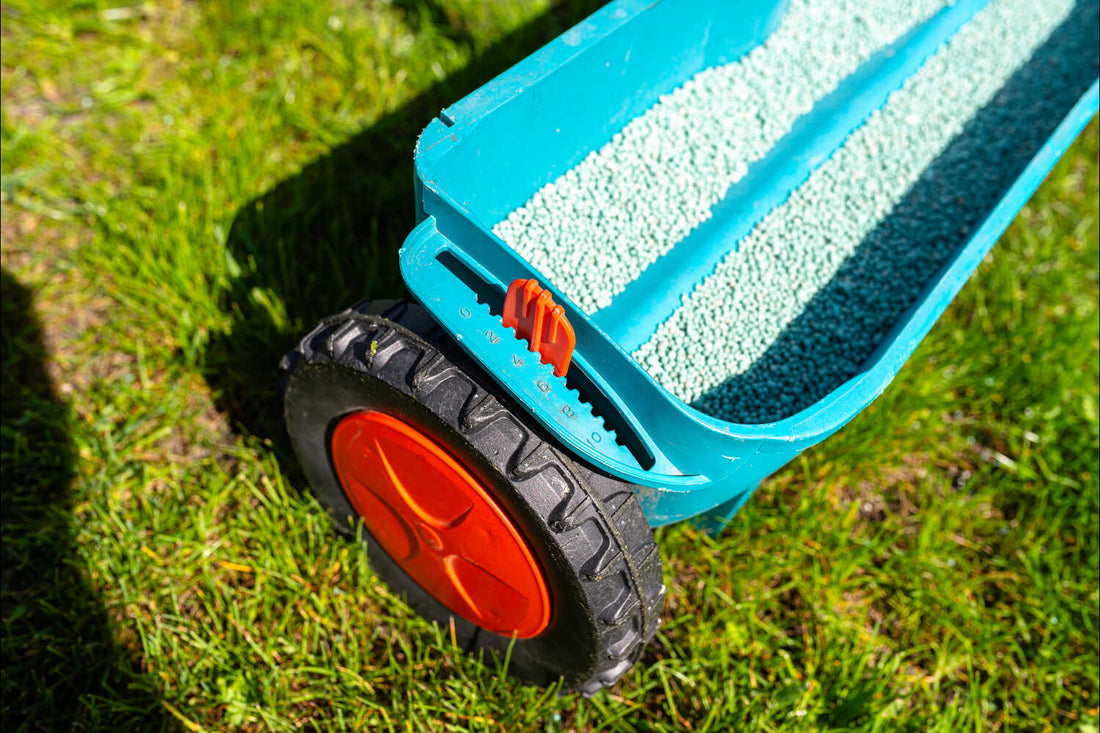If you're someone who takes pride in your lawn and wants to make sure it's getting the best care possible, you've come to the right place.
Is 13-13-13 fertilizer good for lawns? is a question we hear often, and it's essential to understand what this fertilizer can do for your grass.
In this article, we'll dive into the specifics of 13-13-13 fertilizer, exploring its benefits, how it works for different types of grass, and whether it's the right choice for your lawn.
So, if you're ready to learn how to give your lawn the nutrients it needs to thrive, continue reading.
What this article covers:- The Basics of Fertilizer
- Understanding Fertilizer Codes
- Is 13-13-13 Fertilizer Good for Lawns?
- What Is 13-13-13 Fertilizer Good for?
The Basics of Fertilizer
Fertilizers play a crucial role in maintaining a healthy, vibrant lawn. They supply the essential nutrients that grass needs to thrive, specifically nitrogen (N), phosphorus (P), and potassium (K).
Nitrogen promotes lush, green growth by encouraging the development of chlorophyll, which is vital for photosynthesis.
Phosphorus supports strong root systems, ensuring that your lawn can access the water and nutrients it needs from the soil.
Potassium strengthens the grass, making it more resilient to stress factors like heat, drought, and foot traffic.
Without these key nutrients, your lawn may struggle to maintain its health and appearance, which is why regular fertilization is so important.

Understanding Fertilizer Codes
When you see a fertilizer like 13-13-13, the numbers represent the percentage of three key nutrients: nitrogen (N), phosphorus (P), and potassium (K). These elements are essential for lawn health, each playing a specific role in your grass's development.
Nitrogen (N) is crucial for promoting lush, green growth, making your lawn look vibrant and full.
Phosphorus (P) supports the development of strong root systems, ensuring that your grass can anchor itself firmly and absorb necessary nutrients from the soil.
Potassium (K) contributes to the overall health of the plant, helping the grass to withstand diseases, harsh weather conditions, and other stress factors.
Understanding these fertilizer codes helps you choose the right product for your lawn's specific needs, ensuring it receives balanced nutrition for optimal growth and resilience.
Is 13-13-13 Fertilizer Good for Lawns?
13-13-13 fertilizer is a balanced fertilizer, meaning it contains equal parts of nitrogen, phosphorus, and potassium.
Based on our observations, this makes it a versatile option that can be used on various types of lawns. However, the effectiveness of 13-13-13 fertilizer depends on your specific lawn's needs and the season.
Cool-Season Grasses
For cool-season grasses like Kentucky bluegrass or fescue, using a fertilizer with a higher nitrogen content, such as our Almighty 20-0-10 Lawn Fertilizer, can be particularly effective.
This lawn fertilizer is designed to deliver a high dose of nitrogen in a slow-release format, making it ideal for waking up lawns and promoting continuous growth throughout the season.
Initially, the nitrogen provides a quick green-up effect, giving your lawn that immediate "pop" of color.
Following this, the iron in the formula enhances the deep green hue, while the slow-release nitrogen ensures sustained growth without excessive spurts.
The added potassium strengthens the grass, helping it withstand stress and improve overall density. Additionally, the inclusion of GreenTRX bios enhances soil health, creating a better environment for your lawn to thrive.
These cool-season grasses require ample nitrogen during their peak growing periods in spring and fall to maintain their lush, vibrant green color.
However, 13-13-13 fertilizer can still be a suitable option if your soil test shows a balanced need for nitrogen, phosphorus, and potassium.
Warm-Season Grasses
Warm-season grasses, such as Bermuda and Zoysia, can greatly benefit from 13-13-13 fertilizer during their active growing season.
These grasses thrive in warmer temperatures and require a consistent supply of nutrients to maintain their health and vigor. 13-13-13 fertilizer provides a balanced mix of nitrogen, phosphorus, and potassium, which are crucial for their growth.
Nitrogen promotes lush, green foliage, phosphorus supports strong root development, and potassium enhances the grass's overall resilience against stressors like drought and disease.
If your soil test indicates deficiencies in phosphorus or potassium, 13-13-13 fertilizer is particularly beneficial.
By using this balanced fertilizer, you can ensure that your warm-season grasses receive the nutrients they need to stay dense, healthy, and vibrant throughout the growing season.
What Is 13-13-13 Fertilizer Good For?
13-13-13 fertilizer is particularly beneficial for new lawns or when you're working to establish grass in areas that have been stressed or are in poor condition.
This balanced fertilizer provides an equal mix of nitrogen, phosphorus, and potassium, which can help restore vitality to struggling lawns. It's especially effective if a soil test reveals deficiencies in any of these three primary nutrients.
However, if your lawn doesn't require equal amounts of nitrogen, phosphorus, and potassium, a different fertilizer may be more suitable.
For instance, if you're wondering is 10-10-10 fertilizer good for centipede grass, you might find that centipede grass needs less phosphorus, making 13-13-13 fertilizer potentially problematic due to excess phosphorus buildup.
Similarly, you might ask is 15-15-15 fertilizer good for lawns or is 12-12-12 fertilizer good for lawns; these options offer slightly different nutrient balances that might better match your lawn's specific needs, depending on the results of your soil test.

Conclusion
So, is 13-13-13 fertilizer good for lawns? Absolutely, but it's essential to use it wisely. If your lawn requires a balanced nutrient boost and a soil test confirms the need for equal amounts of nitrogen, phosphorus, and potassium, 13-13-13 fertilizer can be an excellent choice.
However, if your lawn has specific needs, such as higher nitrogen content, exploring other options like 20-10-10 fertilizer might be more effective.
At Lawn Synergy, we're committed to helping you cultivate the healthiest lawn possible. We strongly recommend starting with a soil test to tailor your fertilization strategy to your lawn's exact requirements. Ready to take your lawn to the next level?
Trust Lawn Synergy to guide you every step of the way.
If you want to learn more, why not check out these articles below:
- Is 20-10-10 Fertilizer Good for Lawns
- When to Weed and Feed Lawns
- When to Fertilize Centipede Grass
- When to Fertilize St. Augustine Grass
- When Is It Too Cold to Fertilize Lawn
- When to Fertilize Lawn in Michigan
- When to Fertilize Lawn in NC
- When to Fertilize Zoysia Grass in Texas
- Germination of Grass Seed
- How Does Grass Grow?
- How Much Fertilizer for Lawn?
- Will Fertilizer Kill New Grass?
- How to Grow Grass Quickly in Summer
- How to Grow Bermuda Grass
- How to Grow Grass an a Slope






